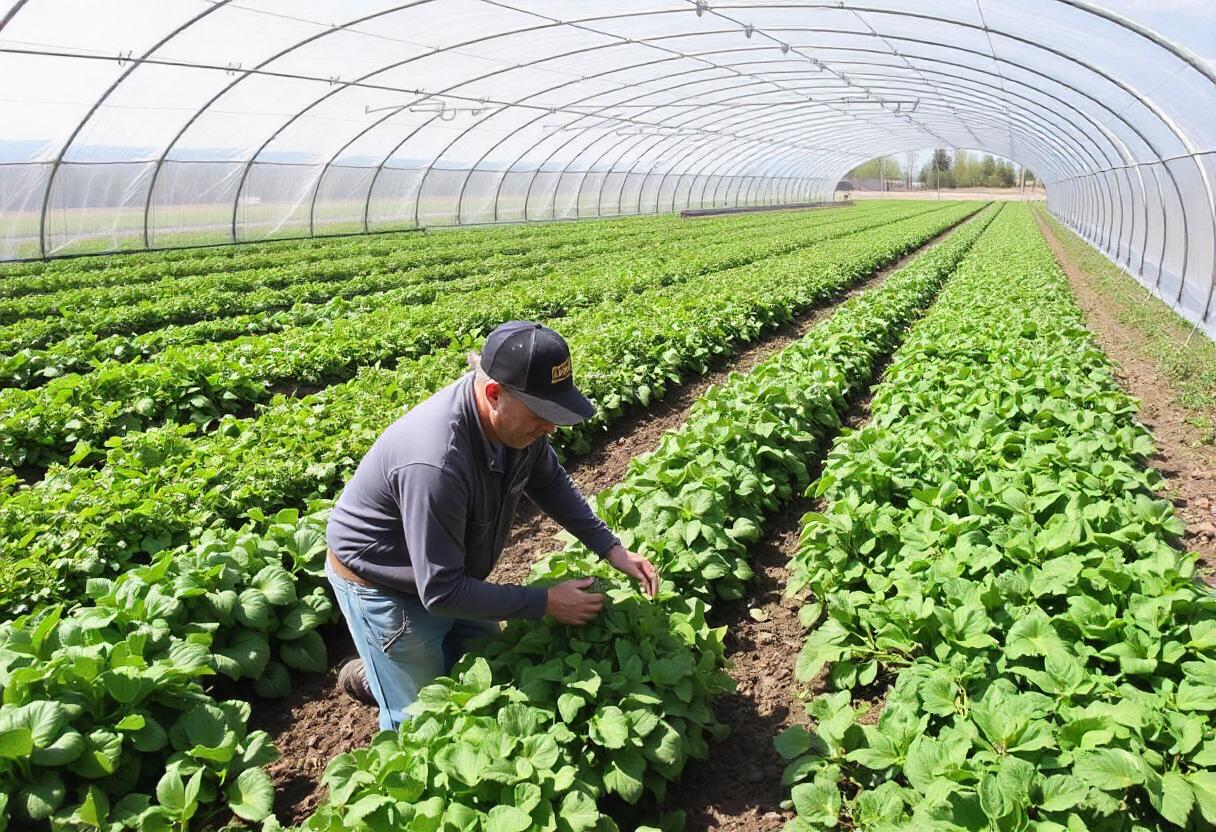
Sustainable agriculture is an essential approach to farming that seeks to balance the need for food production with the preservation of environmental resources for future generations. It involves a holistic view of farming practices, considering their long-term impact on the ecosystem, biodiversity, and human health, while ensuring economic viability for farmers.
Principles of Sustainable Agriculture
At its core, sustainable agriculture is guided by several key principles that define its practices:
- Environmental Stewardship: Sustainable farming focuses on minimizing the environmental impact of agricultural activities. This involves reducing the use of chemical inputs such as pesticides and fertilizers, improving water management, and promoting soil conservation. The goal is to protect ecosystems while maintaining productivity.
- Biodiversity: Sustainable agriculture encourages the use of diverse crops and livestock breeds to promote ecological balance and enhance the resilience of farms to pests, diseases, and climate changes. Biodiversity helps farmers maintain healthy soils and natural pest controls without the need for excessive chemical inputs.
- Soil Health: Healthy soil is the foundation of sustainable farming. Techniques like crop rotation, cover cropping, and organic matter management improve soil structure and fertility. Farmers also adopt conservation tillage methods to reduce soil erosion and improve water retention.
- Water Conservation: Sustainable agriculture prioritizes efficient water use through practices such as drip irrigation, rainwater harvesting, and drought-resistant crop varieties. This is crucial in areas where water is scarce or unpredictable.
- Reduced Chemical Use: Organic farming, agroecology, and integrated pest management are examples of sustainable approaches that reduce reliance on synthetic chemicals. By using natural predators, crop rotation, and resistant crop varieties, farmers can manage pests without harming the environment.
- Energy Efficiency: Reducing energy consumption in agriculture is another vital aspect. Renewable energy sources, such as solar or wind power, are increasingly used to replace fossil fuels in machinery, irrigation systems, and other farm operations.
- Economic Viability: Sustainability also includes ensuring that farming remains economically viable. By adopting techniques that reduce input costs and increase productivity, sustainable agriculture helps farmers maintain profitability without compromising environmental health.
Techniques and Practices
Sustainable agriculture relies on a range of innovative techniques designed to enhance productivity while protecting the environment:
- Agroforestry: This practice integrates trees into farming systems, which can provide shade, improve soil fertility, and increase biodiversity. The trees also act as carbon sinks, helping to combat climate change.
- Permaculture: A design philosophy that emphasizes creating self-sustaining ecosystems, permaculture integrates agriculture, natural ecosystems, and human habitats to create a closed-loop system where waste from one part of the system becomes a resource for another.
- Organic Farming: Organic farming avoids the use of synthetic chemicals and focuses on building healthy ecosystems through natural processes. This method improves soil health, reduces pollution, and promotes biodiversity.
- No-Till Farming: By eliminating or reducing plowing, no-till farming helps preserve soil structure, reduce erosion, and maintain organic matter in the soil. It also conserves water and enhances soil biodiversity.
Benefits of Sustainable Agriculture
The benefits of sustainable agriculture extend beyond the farm and into the broader environment and society:
- Environmental Protection: Sustainable farming reduces pollution, conserves water, and protects biodiversity. It helps to restore ecosystems that may have been damaged by conventional agricultural practices.
- Climate Resilience: By using climate-smart practices like agroforestry and drought-resistant crops, sustainable agriculture helps farmers adapt to the challenges of a changing climate. These practices can make farms more resilient to extreme weather events and shifting growing seasons.
- Food Security: Sustainable agriculture ensures that future generations will have access to healthy, nutritious food by preserving the resources that support food production, such as soil, water, and biodiversity.
- Economic Stability for Farmers: Through sustainable practices, farmers can increase the long-term profitability of their farms. Reduced input costs, improved yields, and access to premium markets for sustainably produced goods all contribute to a more stable economic future for farmers.
Sustainable agriculture represents a critical shift in how we approach farming in a world facing climate change, resource depletion, and population growth. By adopting these practices, we can create a system that meets the needs of today without compromising the ability of future generations to meet their own needs.